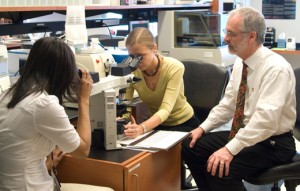A higher level of education is associated with reduced risk of heart disease and stroke for people who live in rich countries, but not for those in low- and middle-income nations, according to the findings of a recent study led by Emory epidemiologist and cardiologist Abhinav Goyal, MD, MHS.
The study published in the Sept. 7, 2010, issue of the journal Circulation, a publication of the American Heart Association, is one of the first international studies to compare the link between formal education and heart disease and stroke. It examined data on 61,332 people from 44 countries who had been diagnosed with heart disease, stroke, or peripheral arterial disease, or who had cardiovascular disease risk factors such as smoking or obesity.
Goyal and team found that highly educated men in high-income countries had the lowest level of cardiovascular disease. However, their findings suggest that research conducted in richer nations can’t always be applied to poorer countries.
“We can’t simply take studies that are conducted in high-income countries, particularly as they relate to socioeconomic status and health outcomes, and extrapolate them to low- and middle-income countries,” says Goyal, assistant professor of epidemiology and cardiology at Emory’s Rollins School of Public Health and Emory School of Medicine. “We need dedicated studies in those settings.”
The research team was surprised to find that despite decreased heart disease risk among the higher educated in industrialized nations, nearly half of the highly educated women from high-income countries smoked, compared with 35 percent for those with the least amount of schooling. For men, smoking rates were virtually the same across educational groups in low- and middle-income countries.
“Everyone needs to be educated about the risk of heart disease in particular, and counseled to adopt healthy lifestyles and to quit smoking,” Goyal says.














